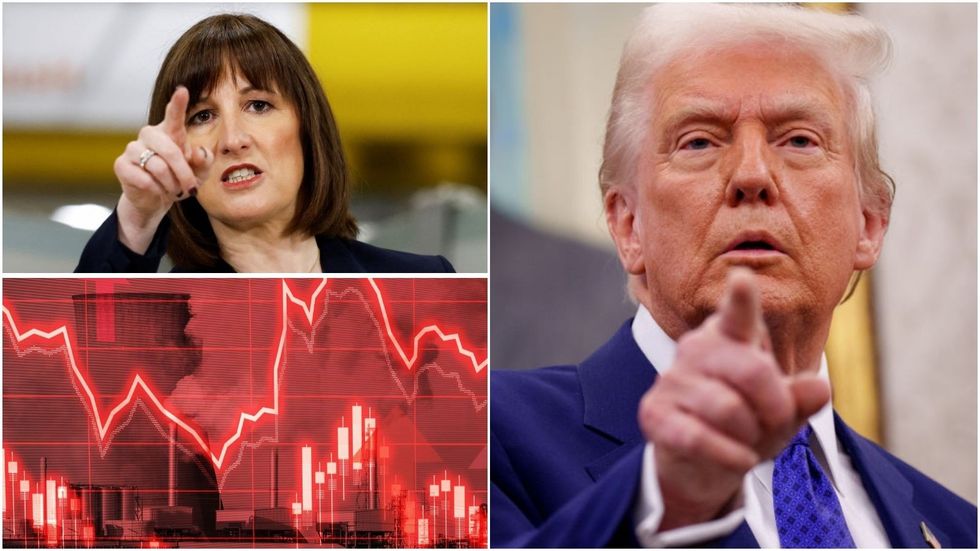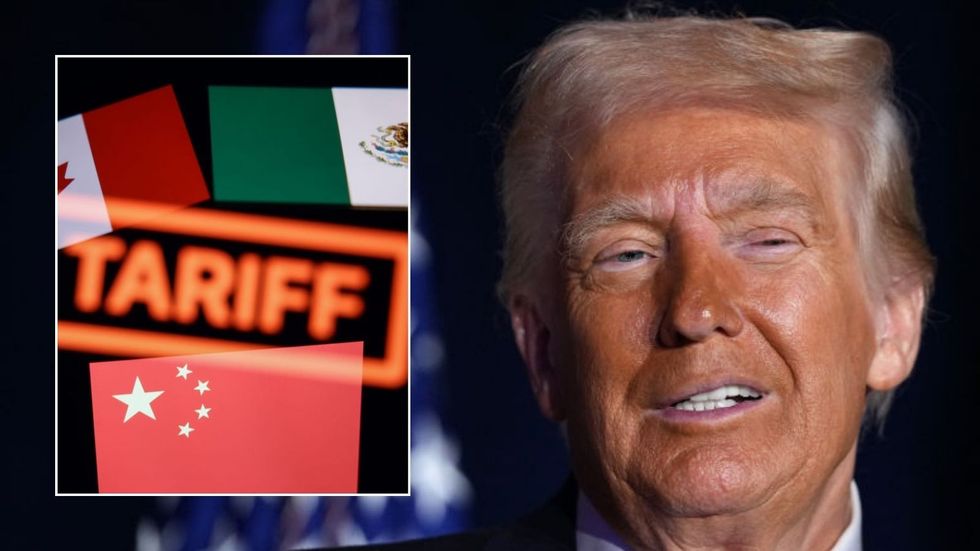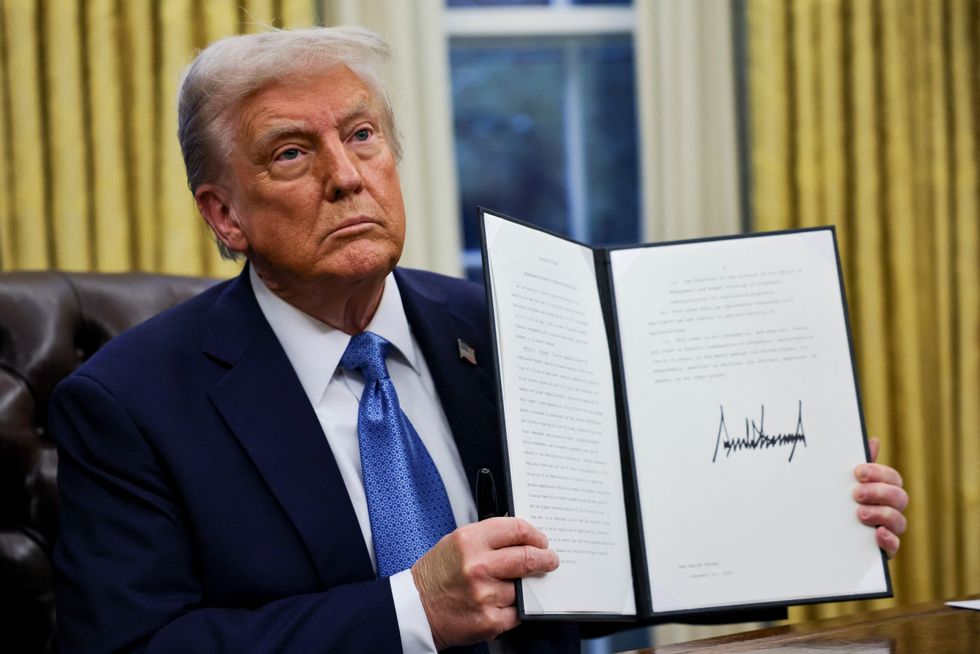Trump tariffs to WIPE OUT £24bn in GDP growth from UK economy as Rachel Reeves faces crisis
Andrew Griffith says Labour is sending wrong message to US as trade war heats up
Donald Trump's latest set of tariffs could have consequences for Britain's economy
Don't Miss
Most Read
Trending on GB News
The UK economy could see £24billion in gross domestic product (GDP) growth wiped out over the next two years thanks to President Donald Trump in a blow to Chancellor Rachel Reeves.
Trump has signed an executive order that could hit UK exports with tariffs of up to 21 per cent as part of an effort to crack down on VAT, which is a tax tagged onto most products and services sold by VAT -registered businesses.
This move represents a significant challenge to Prime Minister Keir Starmer's Labour Government, with economists warning of substantial impact it would have on UK businesses attempting to operate in the United States.
Ahmet Kaya, the head of Global Economic Outlook at the National Institute of Economic and Social Research (NIESR), said the tariffs could reduce UK GDP growth by 0.4 percentage points across a two-year period, amounting to £24bn ($30bn).
The US President's executive order pledges to impose the "exact same tax or tariff" that trading partners place on US goods, however the UK was not specifically named as a target by the White House.
Do you have a money story you’d like to share? Get in touch by emailing money@gbnews.uk.

The President's executive order on VAT could see the UK targeted with tariffs, experts claim
GETTY
Following the signing of the order, Trump's senior trade counsellor indicated that VAT was being considered as a tax on imports, stating that "President is no longer willing to tolerate that".
The targeting of VAT could particularly affect UK-US trade relations, as Britain maintains a value-added tax regime similar to other European nations.
As well as this, the threat of new tariffs comes amid rising US inflation, which has unexpectedly reached three per cent, complicating the economic outlook.
Russell Gous, the editor-in-chief of TopMoneyCompare, warns that persistent US inflation could keep interest rates higher for longer, strengthening the dollar against the pound.

Trump's plan of new tariffs have sent shockwaves through the stock markets
GETTY"If the US targets the UK's services sector—where it runs a trade surplus—this could weaken business confidence and reduce foreign investment," said Gous.
According to the finance analyst, the widening gap between US and UK interest rates could further pressure sterling.
The tariff threat comes as Britain's economy shows only modest signs of recovery, with GDP rising by just 0.1 per cent in the final quarter of 2024.
While services output increased by 0.2 per cent and construction grew by 0.5 per cent, production fell by 0.8 per cent during October-November.
Real GDP per head declined by 0.1 per cent in the same period, highlighting the fragility of the UK's economic position as it faces potential trade disruption with its largest single trading partner.
The Chancellor has pledged to "kickstart the economy" by focusing on bolstering GDP growth during her tenure in the Treasury.
LATEST DEVELOPMENTS:
 Trump is continuing to pursue his tariff agenda REUTERS
Trump is continuing to pursue his tariff agenda REUTERSAccording to the NIESR, the UK could be the third fastest growing economy in the G7 this year, with GDP projected to increase by 1.5 per cent in 2025.
This growth will be driven mainly by the fiscal expansion announced in the October Budget, which will start having a tangible effect over the next couple of months.
Professor Adrian Pabst, the deputy director for Public Policy at the think tank, said: “Higher economic growth and continued real wage growth will provide a welcome relief for millions of households who have seen their living standards decline in recent years.
"But the recovery is slow, and more should be done to help the poorest 20 per cent of households, for example by bringing forward the uprating of personal income tax thresholds in line with inflation scheduled for April 2028."







